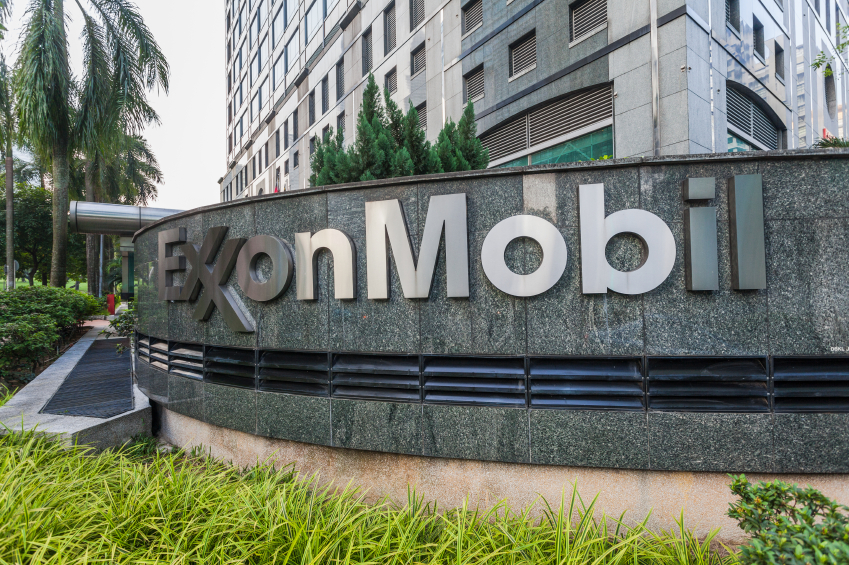- Shell pays $6.397bn to Nigeria
- At six-month peak, oil prices near $70 per barrel
United States energy giant, ExxonMobil, has held talks on the sale of some oil and gas fields in Nigeria as the company focuses on new developments in United States shale and Guyana.
This is coming as over $6.397 billion was paid to the Nigerian government and its agencies in 2018 by Shell exploration and production companies in Nigeria comprising Shell Petroleum Development Company of Nigeria Limited (SPDC) and Shell Nigeria Exploration and Production Company Limited (SNEPCo).
Crude oil prices also yesterday continued to ascend hitting their highest levels of the year with Brent moving closer to $70 a barrel for the first time since late October amid the prospect of tightening supply due to further possible United States sanctions against Iran and other disruptions.
ExxonMobil had announced earlier this year plans to boost its capital spending from $26 billion in 2018 to $30 billion in 2019 and up to $35 billion next year as it seeks to develop oilfields in Guyana and the United States Permian basin as well as gas projects in Mozambique and the US Gulf Coast.
In an analyst presentation last month, the company said it would accelerate its divestments to around $15 billion by 2021.
Reuters reported that the potential disposals of assets in Nigeria are expected to include stakes in onshore and offshore fields and could raise up to $3 billion.
“Exxon is actively divesting in Nigeria,” agency report quoted one source who was briefed on the divestment plans as saying.
When contacted, the spokesman of Mobil Producing Nigeria (MPN), a subsidiary of the company, Mr. Oge Udeagha, told THISDAY yesterday: “ExxonMobil is committed to its long-term business operations in Nigeria. As a matter of practice, we don’t comment on business discussions.”
The Irving, Texas-based company is one of the largest oil and gas producers in Nigeria, with 106 operated platforms.
Its oil output in the West African country reached 225,000 barrels per day (bpd) in 2017, according to its website.
Exxon officials have held talks in recent weeks with several Nigerian companies to gauge their interest in the fields.
One source said Exxon was soon due to open a “data room” – which would provide technical information on the fields, such as seismic and production details – in Nigeria.
The discussions focused on a number of onshore fields ExxonMobil shares in joint ventures with Nigerian state oil firm, Nigerian National Petroleum Corporation (NNPC), including Oil Mining Leases (OMLs) 66, 68, 70 and 104.
Exxon’s share of oil production in those fields reached 120,000 bpd in 2017, the last year for which data was available.
Exxon is also weighing the possible sale of stakes in offshore fields in Nigeria, two sources said.
It is looking into offering for sale assets in Equatorial Guinea and Chad, according to two sources.
The federal government has in the last decade supported a drive by Nigerian independents such as Oando, Seplat and privately held Aiteo to expand their operations in the country as international companies, including Royal Dutch Shell sought to lower their presence.
Shell Pays $6.397bn to Nigerian Govt, Agencies
In a related development, over $6.397 billion was paid to the Nigerian government and its agencies in 2018 by Shell exploration and production companies in Nigeria comprising Shell Petroleum Development Company of Nigeria Limited (SPDC) and Shell Nigeria Exploration and Production Company Limited (SNEPCo).
According to a statement issued yesterday by the company, the payment represents a 48 per cent increase over payments by the companies to Nigerian government in 2017 which was $4.322 billion.
The payments formed part of the four documents released yesterday by the Group Chief Executive Officer of the Royal Dutch Shell, Ben Van Beurden, to signal the global oil giant’s renewed commitment to greater transparency.
The documents are: Shell Sustainability Report; Industry Associations Climate Review; Nigeria Briefing Notes; and Payments to Government Report.
“Shell must remain at the forefront of the drive for greater corporate transparency. We will continue to be more open about what we do and why we do it,” Van Beurden said.
“We want to help people better understand Shell’s performance, values and principles. These reports outline our approach and activities in the crucial areas of sustainability and our relationships with industry associations and governments,” he added
In the breakdown of the 2018 payments, the Shell companies paid $3.776 billion to NNPC as production entitlement, while $1.286 billion was paid in taxes to the Federal Inland Revenue Service. Another $1.253 went to the Department of Petroleum Resources (DPR) for royalties and fees, while $81.5 million was remitted to the Niger Delta Development Commission (NDDC).
Managing Director of SPDC and Country Chair, Shell Companies in Nigeria, Osagie Okunbor, described the reports as a further testament to Shell’s efforts to increase transparency around activities that are important to investors, governments and civil society. “We are irrevocably committed to transparency just as we are to business integrity part of our core values and central tenets of the business principles that govern the way we do business.”
The Shell Nigeria Briefing Notes detail the activities of the Shell companies in Nigeria for 2018.
These include production, environmental performance, social investment, economic contributions, gas initiatives, deepwater operations, security and Nigerian content development.
Crude Oil Prices Near $70 Per Barrel
Meanwhile, crude oil prices yesterday continued to ascend, hitting their highest levels of the year with Brent moving closer to $70 a barrel for the first time since late October amid the prospect of tightening supply due to further possible United States sanctions against Iran and other disruptions.
The gains came on the prospect that more sanctions against Iran and further Venezuelan disruptions could deepen the supply cut by the Organisation of Petroleum Exporting Countries (OPEC), and non-OPEC members led by Russia.
Reuters reported that crude rose 0.68 per cent to $62.01 per barrel, Brent was last at $69.11, up 0.14 per cent on the day.
Brent had reached a session peak at $69.50 a barrel, the highest since November 13, while the US West Texas Intermediate (WTI) crude gained 0.8 per cent, at $62.09 per barrel.
The United States is considering more sanctions against Iran, the fourth-largest producer in OPEC, an official said.
While Washington has granted waivers to eight Iranian oil buyers, the number of waivers could be reduced in the future.
Meanwhile, a key crude terminal in Venezuela, also under United States sanctions, has halted operations again due to power supply problems.
Further supply losses from Iran and Venezuela could widen an OPEC-led production cut that took effect in January, designed to prevent a price-sapping rise in inventories.
The top exporter, Saudi Arabia, has cut more than it had agreed to and due to the involuntary declines.
But Russia, the biggest non-OPEC producer in the so-called OPEC+ group, has yet to reach its production-cutting target.
Russian oil output declined to 11.3 million barrels per day (bpd) last month, energy ministry data showed.
While the country’s output was down by around 112,000 bpd from the October 2018 level, Russia has pledged to cut its oil output by 228,000 bpd from that level.
Source: THISDAY











